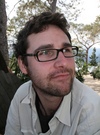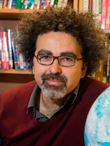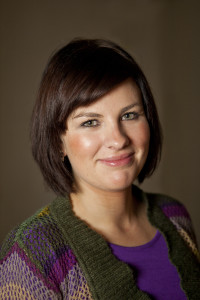Lessons from the past: framing post-war immigration in Germany by historical analogies
In many West European countries, the experience of mass immigration after 1945 was perceived as something basically new and unprecedented. In the lengthy process of coming to terms with the new situation and of developing a self-understanding as countries of immigration and of ethnic pluralism, historical arguments often played an important role. By placing present-day immigration into a historical perspective, by constructing narratives of continuity (and discontinuity) and not least by presenting persuasive historical analogies, historians (and others) introduced arguments that informed the debates of the day and allowed the experiences of immigration and multi-ethnicity to be integrated into (national) narratives of identity. The German case is particularly interesting in this respect, since a tradition of tolerance and successful integration had to be invented in spite of the fresh memories of the Nazi-past that were witness to the contrary.
 Christhard Hoffmann (born 1952 in Luneburg, Germany) is a German historian and professor of modern European history at the University of Bergen. In the period 2007-2013 he was Head of the Department of Archaeology, History, Cultural Studies and Religion.
Christhard Hoffmann (born 1952 in Luneburg, Germany) is a German historian and professor of modern European history at the University of Bergen. In the period 2007-2013 he was Head of the Department of Archaeology, History, Cultural Studies and Religion.
Hoffmann defended in 1986 his doctoral dissertation on German Antiquity historians’ representation of Jews and Judaism in the 19th and 20th centuries [1] at the Technische Universität Berlin, where he also worked as a researcher for many years. From 1994 to 1998 he was a visiting professor at the University of California, Berkeley, and since 1998 he has worked at the University of Bergen.
Hoffmann has an extensive list of publications in the fields of German-Jewish history and cultural history, history of anti-Semitism and migration history.
Communicating Migration Seminar series
The IMER seminar series for 2014 will cover how migration and ethnic relations are communicated in every-day encounters, in mass and social media, in politics and in teaching at the universities. Has the way people talk about migration and migrants in different social contexts changed over time, and in which ways has it changed? How does migration theory and research fit in with other topics and theories in the social sciences, and how do results from migration research inform public debate and policy development?
Communicating migration will be discussed from various angles in our seminar series on international migration and ethnic relations during spring and autumn 2014. We welcome papers that touch upon this broad theme from different angles. Historical analyses of change over time in regard to politics and public debate, research foci and disciplinary concerns are specifically welcomed.
COMMUNICATING MIGRATION SEMINARS: ESPEN HELGESEN – “Your dad is looking for you” – Children’s perspectives on state intervention in immigrant families in Norway
Several recent international news stories have described state-initiated forced separation of children and parents in Norway, illustrating how local decisions in the Child Welfare Service can have widespread ramifications outside the families involved. In this paper I draw on ethnographic fieldwork among immigrant families in Kristiansand, Norway, to show how a group of children responded when one of their friends suddenly disappeared. The secrecy surrounding the inner workings of the Child Welfare Service led the children to frame the incident as a “kidnapping”, and several children expressed fear that they, too, would be separated from their families. Frustrated with the lack of an explanation of what had happened to their friend, the children turned to online worlds, where they could express their fears and concerns by sharing artwork with friends outside the adult gaze.
 Espen Helgesen is a PhD candidate at the Department of Social Anthropology, University of Bergen, currently finishing his thesis on technology-mediated sociality and self-formation among children of immigrants in Norway.
Espen Helgesen is a PhD candidate at the Department of Social Anthropology, University of Bergen, currently finishing his thesis on technology-mediated sociality and self-formation among children of immigrants in Norway.
Communicating Migration Seminar Series IMER Bergen spring and autumn 2014
The IMER seminar series for 2014 will cover how migration and ethnic relations are communicated in every-day encounters, in mass and social media, in politics and in teaching at the universities. Has the way people talk about migration and migrants in different social contexts changed over time, and in which ways has it changed? How does migration theory and research fit in with other topics and theories in the social sciences, and how do results from migration research inform public debate and policy development? Communicating migration will be discussed from various angles in our seminar series on international migration and ethnic relations during spring and autumn 2014. We welcome papers that touch upon this broad theme from different angles. Historical analyses of change over time in regard to politics and public debate, research foci and disciplinary concerns are specifically welcomed. The seminar series will end with a two-day conference in October/November 2014.
BSRS 2014 Governance to meet Global Development Challenges
Welcome to BSRS2014!
The theme for BSRS2014 is Governance to meet Global Development Challenges. The event will take place from June 23rd to July 4th 2014 at the University of Bergen. Please find information about the courses, application form and other activities at the menu to your right side.
One of the courses is and IMER/SKOK PhD course.
Read more at:
http://www.uib.no/rs/bsrs/programme/bsrs-2014-governance-to-meet-global-development-challenges
 How might we think about race as a paradoxically fungible yet persistent feature of human history? This mini seminar examines race as a global phenomenon with long and diverse histories. In its migrations, conceptions of race have repeatedly been marshaled, decried, dismissed, and repurposed, reformulating conceptions of kinship and social organization along the way. From ancient empires, medieval religious conflicts, and early modern accounts of “barbarians” and “strangers” to the longue durée of colonial settlement and slavery, and from the revolutions and uprisings of the eighteenth, nineteenth, and twentieth centuries to more recent accounts of physiognomy, eugenics, and DNA, the phenomenon of race has interacted dynamically across time and space with conceptions of caste, color, class, language, identity, law, region, and religion. Our class will begin with a conventional genealogy of race as arising from the age of Atlantic Revolutions, the slave trade, and scientific thinking in Europe and the United States before complicating our understandings of the phenomenon as one shaped over centuries of contact and interchange. Our second session will examine a longer history of race and caste in relation to Iberian colonization of the East and West Indies and our third session will investigate race and the littoral in Indian Ocean studies. Registration deadline is August 8th, 2014.
How might we think about race as a paradoxically fungible yet persistent feature of human history? This mini seminar examines race as a global phenomenon with long and diverse histories. In its migrations, conceptions of race have repeatedly been marshaled, decried, dismissed, and repurposed, reformulating conceptions of kinship and social organization along the way. From ancient empires, medieval religious conflicts, and early modern accounts of “barbarians” and “strangers” to the longue durée of colonial settlement and slavery, and from the revolutions and uprisings of the eighteenth, nineteenth, and twentieth centuries to more recent accounts of physiognomy, eugenics, and DNA, the phenomenon of race has interacted dynamically across time and space with conceptions of caste, color, class, language, identity, law, region, and religion. Our class will begin with a conventional genealogy of race as arising from the age of Atlantic Revolutions, the slave trade, and scientific thinking in Europe and the United States before complicating our understandings of the phenomenon as one shaped over centuries of contact and interchange. Our second session will examine a longer history of race and caste in relation to Iberian colonization of the East and West Indies and our third session will investigate race and the littoral in Indian Ocean studies. Registration deadline is August 8th, 2014.
More info:
http://www.uib.no/skok/77000/phd-kurs-rase-migrasjon-og-slektskap
http://www.uib.no/en/skok/77008/graduate-course-race-migration-and-kinship
Nando Sigona – The politics of refugee voices: representations, narratives and memories
This paper reflects on existing debates surrounding the politics of ‘refugee voices’ by examining the relationship between representations, narratives, and memories of refugees’ experiences. Drawing on literature framed by post-structuralist and critical theories, the chapter problematizes assumptions regarding the existence of ‘a refugee voice’ on the one hand, and the extent to which academic and policy discourses often fail to listen to or to hear such voices on the other. It does so by identifying different configurations of the production and consumption of emic narratives of forced migration and displacement (that is, produced by forced migrants themselves), exploring the factors shaping these narratives and the embedded power relations that permeate them. In particular, the paper explores the practices and spaces which refugees enact and embody to contest the processes which lead to the silencing and marginalization of their narratives and experiences. To do so, the chapter is divided in three main sections which in turn address different yet interlinked manifestations of the ‘refugee voice’.
 Nando Sigona is a lecturer and Birmingham Fellow at the University of Birmingham. He is also Research Associate at the Centre on Migration, Policy and Society (COMPAS) and Refugee Studies Centre, both at the University of Oxford. His research interests include: statelessness, diasporas and the state; Romani politics and anti-Gypsyism; ‘illegality’ and the everyday experiences of undocumented migrant children and young people; and governance and governmentality of forced migration in the EU.
Nando Sigona is a lecturer and Birmingham Fellow at the University of Birmingham. He is also Research Associate at the Centre on Migration, Policy and Society (COMPAS) and Refugee Studies Centre, both at the University of Oxford. His research interests include: statelessness, diasporas and the state; Romani politics and anti-Gypsyism; ‘illegality’ and the everyday experiences of undocumented migrant children and young people; and governance and governmentality of forced migration in the EU.
His work has appeared in a range of international academic journals, including Sociology, Social Anthropology, Journal of Ethnic and Migration Studies, Identities and Ethnic and Racial Studies. He is one of the editors of the Oxford Handbook on Refugee and Forced Migration Studies (Oxford University Press 2014), Associate Editor of Migration Studies, a refereed journal by Oxford University Press, and co-author of Sans Papiers. The social and economic lives of undocumented migrants (Pluto Press, 2014).
IMER Seminar:
Elaine Chase and Jenny Allsopp: The ‘tactics’ of time and status: Young people subject to immigration control making the transition to ‘adulthood’ in the UK
Young people who arrive in the UK from outside Europe without a parent or legal guardian are institutionally categorised according to a range of possible legal statuses and usually afforded time-limited Leave to Remain in the UK. These categorisations are associated with specific welfare entitlements which tend to diminish over time and become particularly uncertain as young people transition into ‘adulthood’. Situated within a broader research programme examining the link between migration, ‘wellbeing’ and ‘futures’, this paper examines the multiple transitions imposed on young people subject to immigration control as they approach the age of 18 and beyond, (from child to ‘adult’, from being accorded a temporary residence permit to more permanent leave to remain or from legality to ‘illegality’) and the implications for their access to various dimensions of welfare provision. The paper shows how different components of the ‘state’ have time limitations at their disposal to control access to welfare and state support according to chronological age. From young people’s perspectives, such ‘tactics’ fundamentally control their trajectories and future prospects unless they can formulate strategies of their own to counter such tactics.
Read more about Elaine Chase here
Read more about Jenny Allsopp here
Rolf Halse: Muslim characters in the television serial 24
The presentation will centre on my PhD thesis – a thesis that I according to plans will defend 7 November this year at the University of Bergen. The thesis presents an examination of the US television serial 24’s representation of Muslim characters, and it explores to what extent the perception of these characters can be determined by the cultural and ethnic belonging of the audience. The main reason for choosing to study 24 exclusively is that after 9/11 the serial played a central role in the public debate about whether Muslims are being stereotyped in US television entertainment. Hence, I will discuss whether the critics of 24 have a valid point with regards to the show’s portrayal of negative stereotypes. I will also assess to what extent the serial’s effort to introduce Muslim counter-stereotypes proved to be an adequate response to the criticism.
 Rolf Halse is a Ph.D. Candidate at the Department of Information Science and Media Studies, at the University of Bergen. His research interests lie in popular culture, media audiences and the politics of representation. Halse has published his work in renowned media studies journals such as Critical Studies in Television: the International Journal of TV Studies, Journal of Arab and Muslim Media Research and Nordicom Review.
Rolf Halse is a Ph.D. Candidate at the Department of Information Science and Media Studies, at the University of Bergen. His research interests lie in popular culture, media audiences and the politics of representation. Halse has published his work in renowned media studies journals such as Critical Studies in Television: the International Journal of TV Studies, Journal of Arab and Muslim Media Research and Nordicom Review.
Contact: Rolf Halse, Department of Information Science and Media Studies, University of Bergen, Box 7802, 5020, Bergen, Norway. E-mail: rolfhalse@infomedia.uib.no
Katrine Mellingen Bjerke – Elderly migrants in Norway
 Aging of the population raises a series of different challenges for the Norwegian elderly care system. One of the challenges is related to user differentiation, that is, the understanding that services should be adapted to each user’s individual needs. Related to this emphasis on user differentiation is an increasing cultural diversity amongst the elderly population as cohorts of labour migrants and refugees that came in the 1960s and 1970s are facing old age. This necessitates more knowledge about how these elderly migrants perceive of old age, and particularly how they experience and perceive Norwegian care services. This paper addresses how elderly immigrants with a Pakistani and Polish background perceive of aging in Norway, and how they experience and relate to the Norwegian welfare and care regime. What are their expectations? How do they go about covering their assistance needs, both formally (within the public welfare system) and informally (within their family and/or the community).
Aging of the population raises a series of different challenges for the Norwegian elderly care system. One of the challenges is related to user differentiation, that is, the understanding that services should be adapted to each user’s individual needs. Related to this emphasis on user differentiation is an increasing cultural diversity amongst the elderly population as cohorts of labour migrants and refugees that came in the 1960s and 1970s are facing old age. This necessitates more knowledge about how these elderly migrants perceive of old age, and particularly how they experience and perceive Norwegian care services. This paper addresses how elderly immigrants with a Pakistani and Polish background perceive of aging in Norway, and how they experience and relate to the Norwegian welfare and care regime. What are their expectations? How do they go about covering their assistance needs, both formally (within the public welfare system) and informally (within their family and/or the community).
Katrine Mellingen Bjerke
Katrine Mellingen Bjerke is a PhD candidate at the Department of Sociology, at the University of Bergen. She is also associated with IMER Bergen. Her PhD project explores how elderly migrants perceive of the public elderly care services in Norway. Read more about Katrine here
Film and panel discussion on the dilemmas of mediating irregular migration
Wednesday 19th of November
Venue: Tegleverket, Det Akademiske Kvarter, Bergen
18.00-19.30: Letter to the king
Film by Hisham Zaman
Letter to the King portrays five people on a day trip from a refugee camp to Oslo, a welcome change in an otherwise monotonous life. But we soon realize that each and every one of them has an agenda for their trip. All five will make decisive choices on this day, as they discover happiness, humiliation, love or fulfill a long-awaited revenge. The five stories are tied together by a letter, written by eighty-three year old Mirza. Mirza wants to hand over the letter to the King personally.
19.30-21.00: Mediating irregular migration
Researchers, artists, authors, journalists and others contribute to the proliferation of images of the lives, and deaths, of those who migrate without proper authorization from the state. While stereotypical accounts of victims/criminals proliferate in mainstream media – (counter) representations that challenge such stereotyping also exist. The speakers in this panel discussion have all participated in producing and/or analysing images of irregular migration. Taking as their point of departure the film “Letter to the King”, they will discuss the poetics and politics of mediating irregular migration. What (im)possibilities does such mediation offer for current border struggles?
Plenary panel discussion with:
Mehmet Aktas, co-producer and scriptwriter, Letter to the king
Shahram Khosravi, Associate Professor of Social Anthropology, University of Stockholm
Synnøve N. Bendixsen, Post-doctoral fellow PROVIR and Department of Social Anthropology, University of Bergen
Film and panel discussion is organized by IMER Bergen in cooperation with Studentersamfunnet i Bergen (http://samfunnet.sib.no/) and is part of the PROVIR-project’s closing conference.
Precarious inclusion: Provision of welfare to irregular migrants in Norway
The IMER Bergen-project Provision of welfare to irregular migrants (PROVIR) will present its research findings at this open event.
PROVIR combined legal and anthropological approaches to investigate the complex relationship between law, institutional practice, and irregular migrants’ lived experience. The research project aimed to cast light on living conditions and access to welfare of irregularized migrants.
You can find more information about the project at PROVIRs website: http://rokkan.uni.no/sites/provir/
Date: November 20th
Time: 10.00 to 11.45
Venue: Auditorium 4, Faculty of Law, University of Bergen
